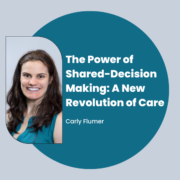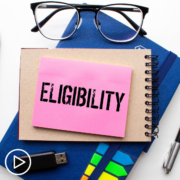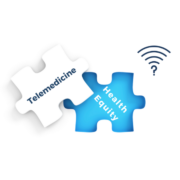Evolving Myeloma Clinical Trial Discussions Amid a Dynamic Treatment Landscape
Evolving Myeloma Clinical Trial Discussions Amid a Dynamic Treatment Landscape from Patient Empowerment Network on Vimeo.
How can discussion about myeloma clinical trials continue to expand? Experts Dr. Beth Faiman from Taussig Cancer Institute and RuthAnn Gordon from Memorial Sloan Kettering Cancer Center discuss how clinical trial communication has changed and some specific points of communication that are helpful.
Download Resource Guide|Descargar guía de recursos
Related Resources:

|

|

|
Transcript:
Dr. Nicole Rochester:
Dr. Faiman, as the myeloma treatment landscape continues to expand thanks to clinical trials, how are clinical trial conversations evolving, and what do you feel should be top of mind?
Dr. Beth Faiman:
That’s an excellent question. Over 20 different drugs are available in various combinations. And so we talked about sequencing very briefly about having patients that have access to clinical trials, making sure they’re not exposed to this class, or maybe they needed to be exposed to this class of drug before they can get drug B, for example. And so sharing mutual information through shared decision-making, again, the patients sharing information and goals of care, the provider and healthcare team mutually sharing information, bring in your social worker or pharmacist, etcetera, and then you can mutually agree on a treatment for the patient. And so that is something we did not have 20 years ago. There were very few effective agents.
I like to remind patients when we provide clinical trial consent forms, that the language is written by lawyers, but it’s intended to protect you. I overemphasize that this is voluntary, and you can withdraw your consent at any time. But I try to go back and highlight why there’s stringent, plus or minus one day, maybe you can’t take off three days to go on a holiday weekend, because we really need to dose this drug on that day and obtain this blood information. So again, having the patients understand what’s involved in the clinical trials and then being able to provide information.
I like to also offer handouts. So the International Myeloma Foundation has clinical trials and diversity handouts. And then another one that I really like is by the FDA that describes the importance of clinical trials. I give that to everybody. So at diagnosis, if you’re on a standard care treatment, you’re not receiving a clinical trial. Everybody that comes into my office that I see for myeloma amyloidosis and related disorders, I would say, “You are a candidate for clinical trial now, but if I or somebody else does not involve you or ask you to participate, then ask us. Just ask us about clinical trials.” I even have a pen that says “Ask me about clinical trials” so that everybody can see it.
Dr. Nicole Rochester:
I love the idea of a pen. Wonderful. Well, let’s move on to how to educate and mentor nursing professionals. Both of you are nursing professionals, and you’ve clearly highlighted in this program so far the importance of the role of nurses in this clinical trial process. So, Ms. Gordon, I’m going to go to you. We know that one significant challenge for some providers is actually initiating conversations about clinical trials and also determining the appropriate timing. Can you speak to whether care variation may pose challenges in community hospital settings, perhaps compared to academic hospitals?
RuthAnn Gordon:
Yeah, absolutely. I think one of the most important things about when to talk to the patient is every time, anytime, right? I think that we should be asking them if they’re interested in clinical trials. If they haven’t been engaged in that, we should be talking to them about, “You know, there’s maybe a chance at some time in our partnership together that we will be talking about clinical trials.” And introducing that up front I think is really important so that we don’t leave clinical trials sort of as a last thought and the patient have that feeling. And I think that for the community setting, that’s one of the things that may be a challenge, is because it is hard to put a patient on a clinical trial and run it from a community setting.
So it’s, how do we give them the support and resources so that it’s not so hard and that they do offer it and talk to their patients as much as possible about it? And I feel like that’s what we need to do more with these partnerships with academic settings, is that we have to give them support so that it’s not so hard, and that that clinical trials first of mind to them when they’re planning care for their patients.










